Ask Ethan No. 53: What is the Big Break?
- Transfer
The worst of all the destinies of the Universe, leading to the complete destruction of all that was and will be
Why is it necessary to be so alone? So many people live in this world, each of us eagerly searches for something in another person, and still we remain the same infinitely distant, divorced from each other. Why should this be? For what? Maybe our planet is spinning, fueled by human loneliness?
- Haruki Murakami
Around us there is a huge Universe stretching for hundreds of billions of light years, containing at least a trillion galaxies. It is possible that the Universe, whose dimensions exceed its observable part, is infinite. But what will happen to her in the future? Among your excellent questions and suggestions sent this week, a Jeff Harris question was selected in our column for an answer that asks:
I once read an article in the New York Times about something called The Big Break. They pointed out that the accelerating expansion of the Universe will lead to the fact that galaxies cannot interact with each other, atoms cannot form, and matter will “evaporate”. Given the current expansion rate, is this possible? What will be the main stages of this Big Break, and after what time will they occur from the current?
If you are interested in the fate of the Universe, you need to return to the Big Bang and see how it has evolved to this day.
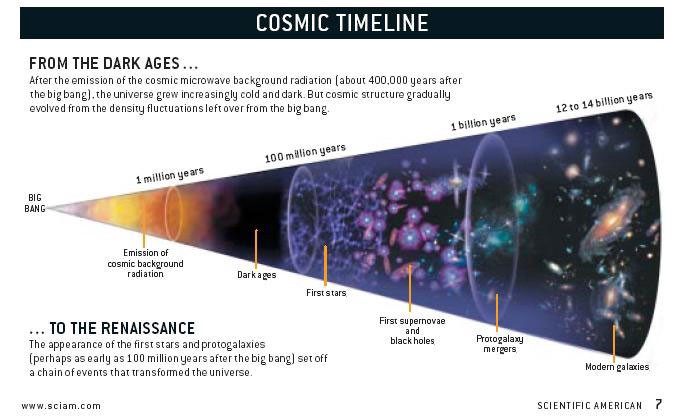
In the early stages, 13.8 billion years ago, the Universe was hot, dense, almost perfectly homogeneous, and expanded very rapidly. Since the Universe is very massive, it was simultaneously affected by gravitational attraction, which slowed down the expansion, counteracted it, and, possibly, could someday reverse it. The latter depends on three things: the initial rate of expansion, the total amount of matter and energy in the universe, and the type and proportions of the types of energy present.
For a long time it was believed that the Universe has three development options:
- when there is enough matter and energy to overcome the initial expansion, it will slow down, stop, and go back. The Universe Collapses Into Great Compression
- when matter and energy are not enough, and expansion will continue indefinitely. Gravity will slow it down, but it will always be positive, and distant galaxies will continue to move away.
- the perfect balance between these two options, when another proton would lead to recollapse, but we don’t have it. In this case, the expansion rate will asymptotically tend to zero
Of course, the real universe does not behave this way.

It expanded for a very long time and slowed down until matter and energy were blurred, and then, about six billion years ago , the speed with which the galaxies scattered from us stopped decreasing and the Universe began to accelerate. This acceleration continues now, without any signs of slowdown.
Although the density of matter and energy continues to fall, ongoing acceleration tells us that there is a new form of energy, in addition to the usual ones: the one we call dark energy.
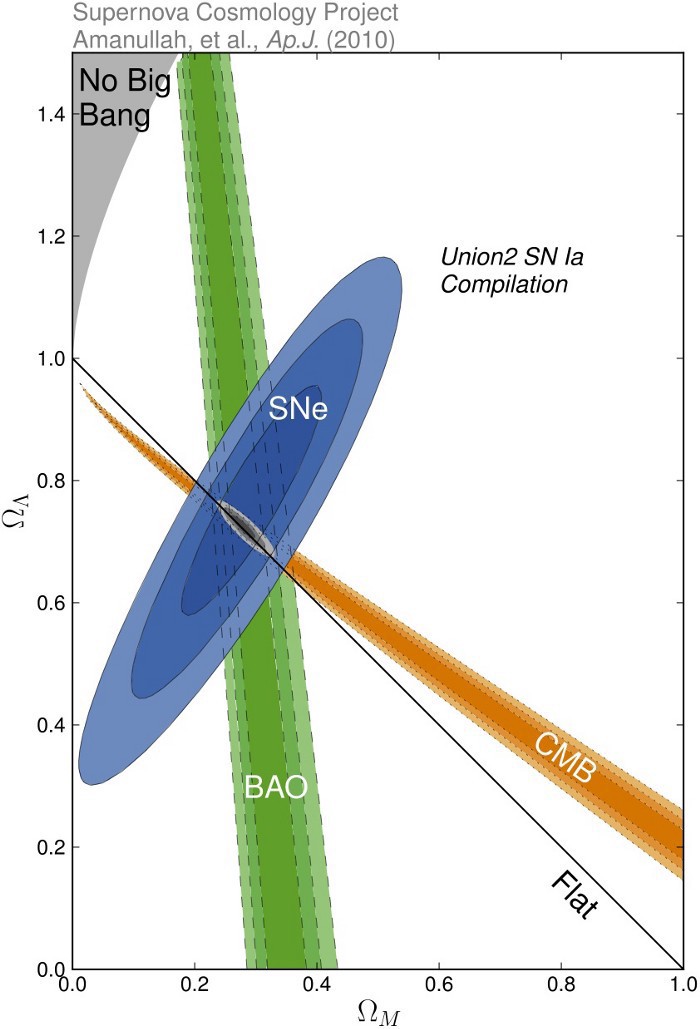
Dark energy gives off in various observations, including large-scale structures, microwave cosmic radiation, when observing distant objects - bursts of gamma radiation, quasars, type Ia supernovae. Over the past years, we measured it very carefully, and over the past 10 years, the error in measuring its amount has decreased from 100% to 8%.
Given our limited capabilities, we believe that dark energy is indistinguishable from a cosmological constant - that is, its density does not change over time.
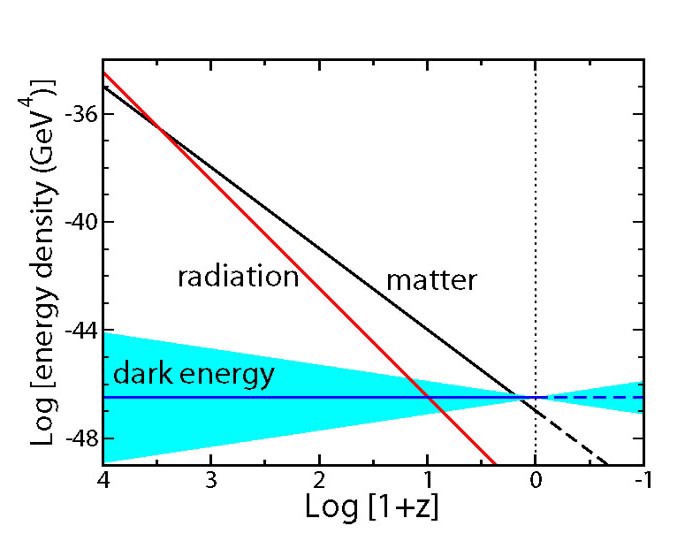
But it does not have to be an exact constant. Theoretically, the best hypothesis (with the least amount of assumptions and free parameters) is the assumption that dark energy is a cosmological constant. Of all the possibilities, this would be the smallest surprise.
But there are others - dark energy can be almost constant, decreasing from a larger value in the past, albeit slowly. In this case, the phenomenon of acceleration would also gradually fade away, as a result of which the Universe would cease to expand at all.
It is also possible that the dark energy will change from a positive to a negative value, and will lead to a large compression.
But there is another option — that Jeff wants us to consider — that dark energy will increase over time. This will lead us to the Big Break.
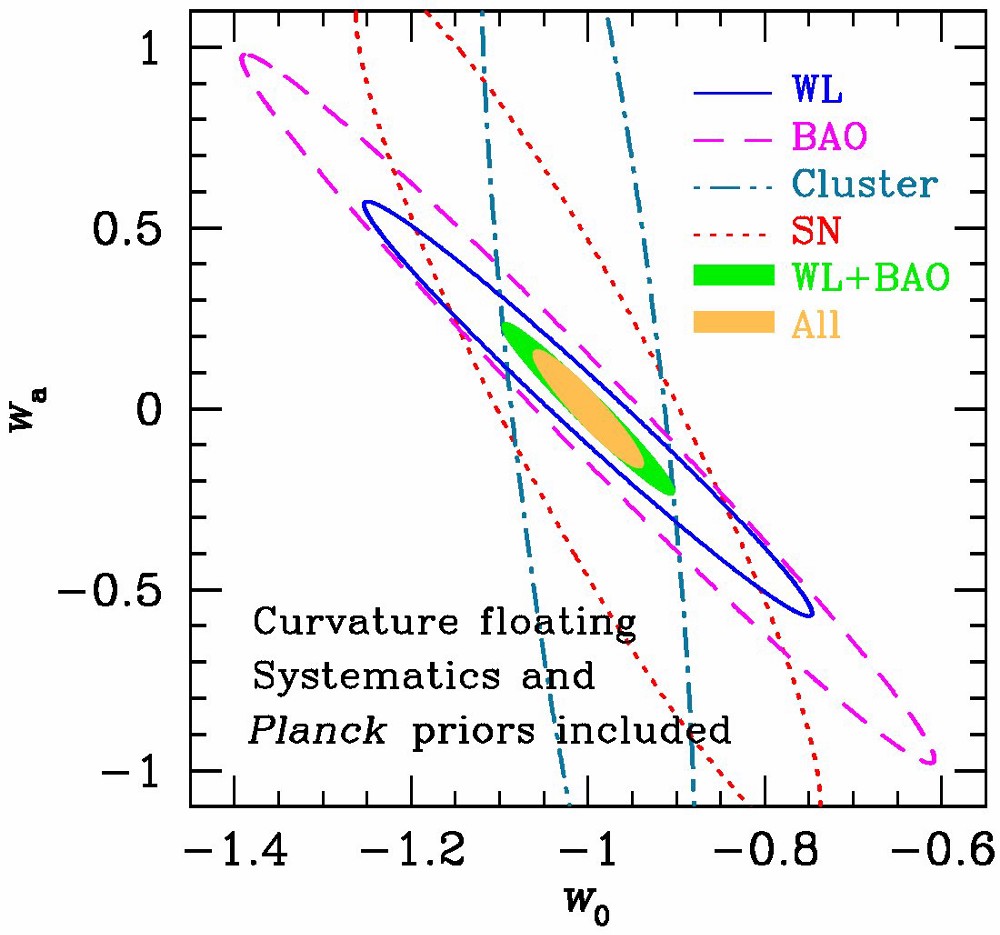
If dark energy were constant, then an object located 10 million light-years from us would have to move away at a speed of 150 to 200 km / s. By the time it reaches 20 million light-years, its speed will be 300 km / s. With a distance of 100 million light-years, the speed will be already 1,500 km / s, with a billion light-years - 15,000 km / s, and at 20 billion - it will be equal to the speed of light, 300,000 km / s!
But since the Universe is already accelerating, and objects already exist, moving away from us at a speed greater than the speed of light, it turns out that 97% of the observable part of the Universe - stars, galaxies, planets - are no longer available to us forever. Even if today we jump into a spaceship with an unlimited source of energy, we will not be able to reach them.
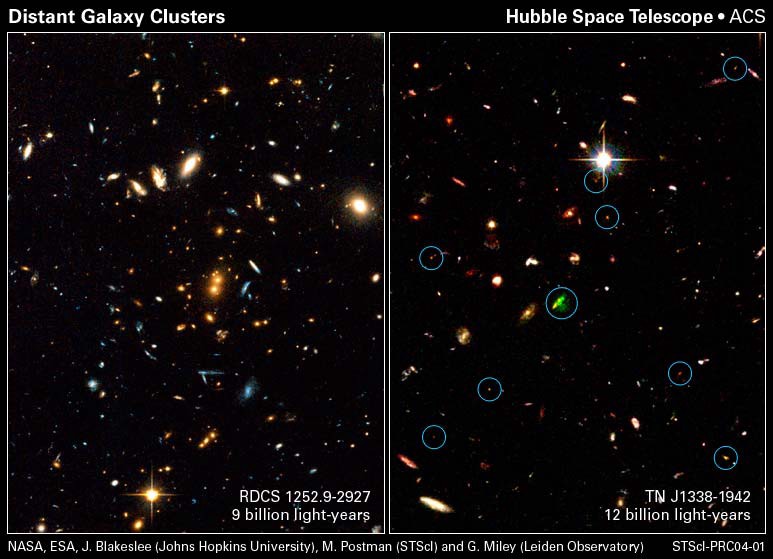
If the dark energy is constant, then the solar system, our galaxy and a local group of galaxies - including the Milky Way, Andromeda, the Triangle galaxy, Magellanic clouds, and a couple more dozen dwarf galaxies - will remain gravitationally bound for trillions of trillions of years in the future. But if it grows, or amplifies, then acceleration will not only lead away galaxies from us, but also destroy the gravitational bonds of these structures!
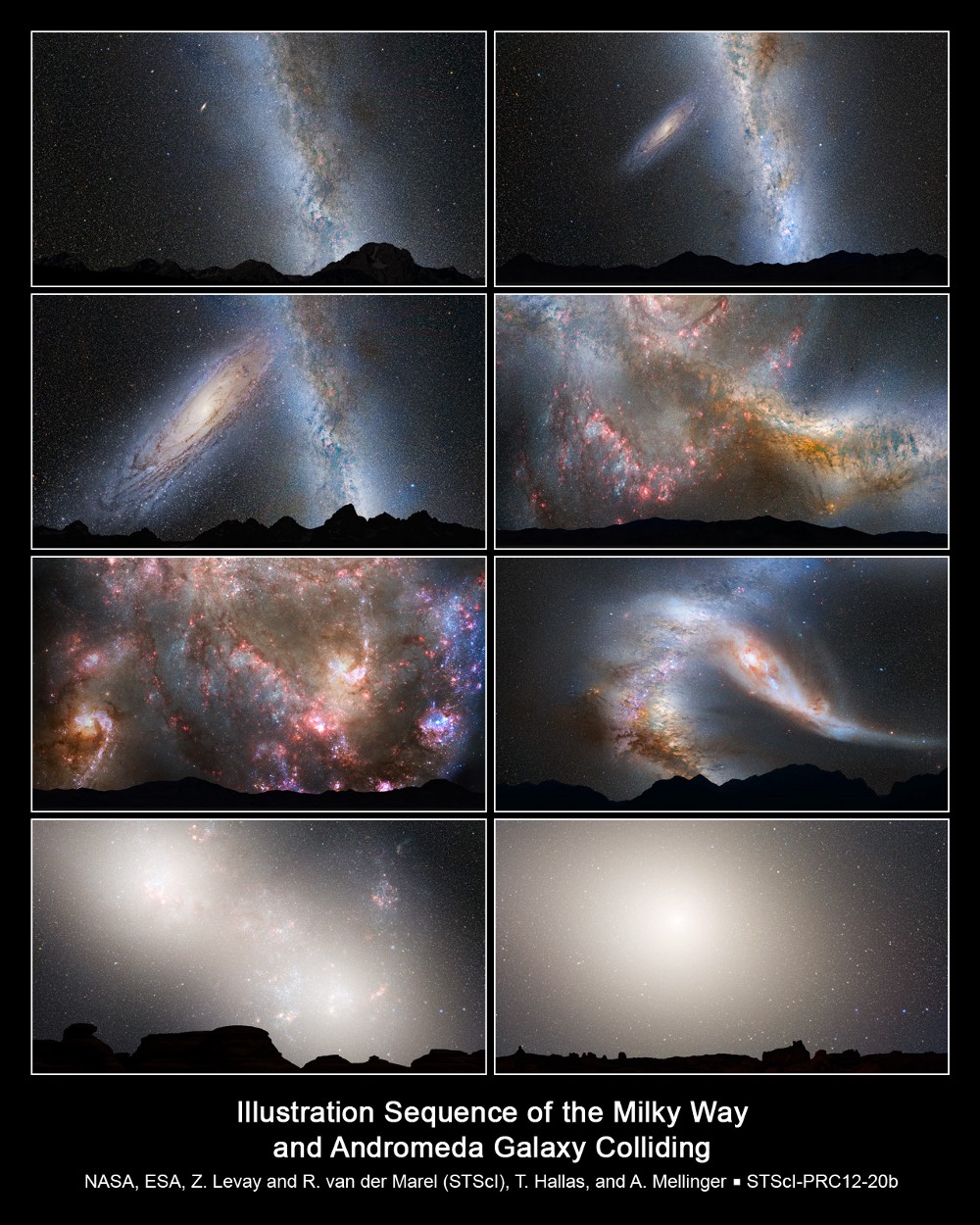
If the density of dark energy increases tenfold relative to today's value, then the Milky Way will no longer unite with Andromeda, but rather diverge with it, like all distant galaxies of the Universe. The Triangle Galaxy and most others will also be lost.
If you increase it 100 times, then the stars from the edge of the Milky Way will begin to fly apart, and the metric expansion of the cosmos will overcome the attraction of all matter in our local group. Let's increase it 200-300 times - and even the Sun will fly away from our galaxy.
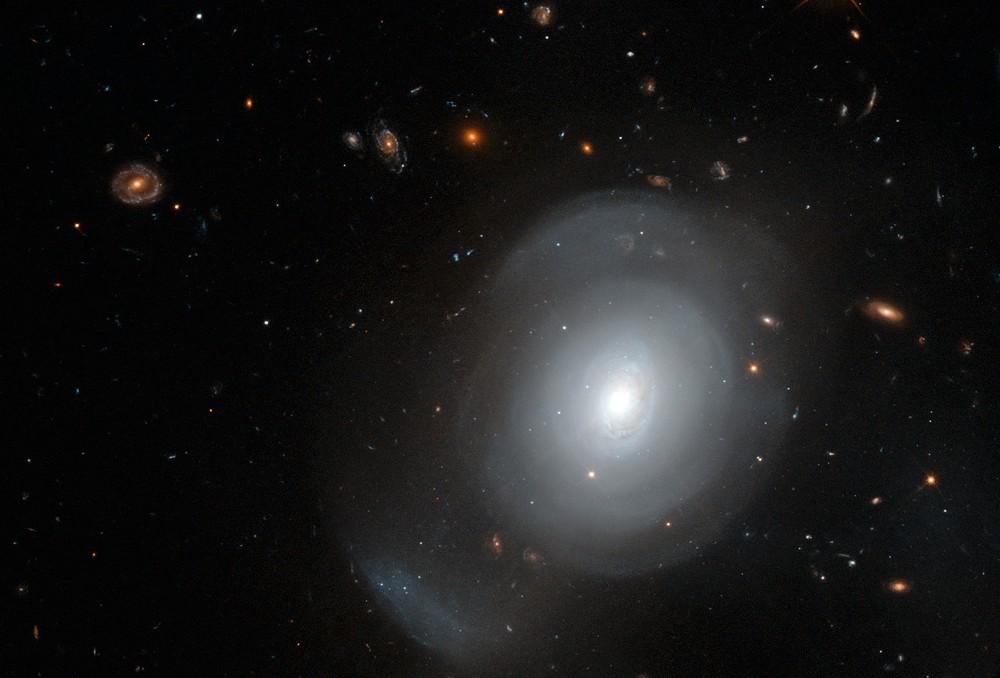
And if the density of dark energy continues to grow, what will happen to our solar system? As a result, the planets will fly away from the Sun, and the Earth will be thrown out of orbit when the density of dark energy increases - get ready - 100 billion times. In the end, people will overcome gravity, as well as cells, molecules, atoms and nuclei will be torn if the density of dark energy increases to infinity. Perhaps even space-time itself will burst at the end.

A terrible fate, of course. It was first described in the work of 2003 by Robert Caldwell, Mark Kamionkovsky and Nevin Weinberg, and everything was quite simple for them. All forms of energy density in the Universe have a pressure associated with them, and it (with the help of some transformations of units of measure) can be expressed in terms of density. For stationary dust, the pressure is zero, for radiation, the pressure is 1/3 of the energy density, and for cosmological constants, the pressure is equal to a negative value of the energy density.
In physics, we call the constant that goes first (+1/3 for radiation, 0 for matter, -1 for the cosmological constant), the parameter w, and call it the equation of state. The authors of the term "Big gap" considered w equal to -1.5, and found that the Universe will end in 22 billion years. Almost all of the events described above will happen shortly before the end, and then the density of dark energy will have to increase very slowly, and in the end it will begin to increase sharply to infinity.

Based on today's observations, we can establish w = -1.0 with an error of ± 0.08, as a result of which the Big Gap is moved 80 billion years from today. If you want to calculate the lifetime in the case of any of the variants of the equation of state, you can substitute it in the following formula. Just be sure to convert the units correctly.

Keep in mind that, as far as we know, w = -1, and then it turns out that there will not be a big gap. I would put it if I were a gambler, although it is important to remember that this is all a science, and we do not exclude any possibilities - no matter how unpleasant they may seem to us, as long as the evidence allows us.
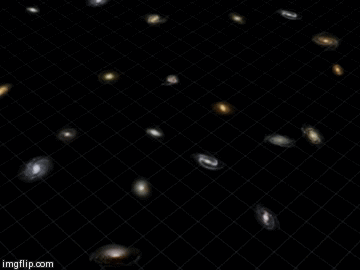
Thanks for the great question, Jeff, and if you want your question to be covered in our column, send it to us. The universe is full of mysteries, large and small, worthy of thought.
